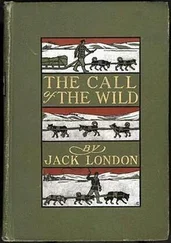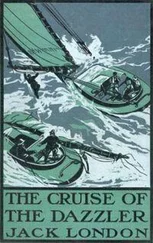Jack London - The Road
Здесь есть возможность читать онлайн «Jack London - The Road» весь текст электронной книги совершенно бесплатно (целиком полную версию без сокращений). В некоторых случаях можно слушать аудио, скачать через торрент в формате fb2 и присутствует краткое содержание. Год выпуска: 1907, Жанр: Классическая проза, на английском языке. Описание произведения, (предисловие) а так же отзывы посетителей доступны на портале библиотеки ЛибКат.
- Название:The Road
- Автор:
- Жанр:
- Год:1907
- ISBN:нет данных
- Рейтинг книги:5 / 5. Голосов: 1
-
Избранное:Добавить в избранное
- Отзывы:
-
Ваша оценка:
- 100
- 1
- 2
- 3
- 4
- 5
The Road: краткое содержание, описание и аннотация
Предлагаем к чтению аннотацию, описание, краткое содержание или предисловие (зависит от того, что написал сам автор книги «The Road»). Если вы не нашли необходимую информацию о книге — напишите в комментариях, мы постараемся отыскать её.
The Road — читать онлайн бесплатно полную книгу (весь текст) целиком
Ниже представлен текст книги, разбитый по страницам. Система сохранения места последней прочитанной страницы, позволяет с удобством читать онлайн бесплатно книгу «The Road», без необходимости каждый раз заново искать на чём Вы остановились. Поставьте закладку, и сможете в любой момент перейти на страницу, на которой закончили чтение.
Интервал:
Закладка:
It happened in my own town, in Oakland, when I was sixteen. At that time I had attained a dizzy reputation in my chosen circle of adventurers, by whom I was known as the Prince of the Oyster Pirates. It is true, those immediately outside my circle, such as honest bay-sailors, longshoremen, yachtsmen, and the legal owners of the oysters, called me "tough," "hoodlum," "smoudge," "thief," "robber," and various other not nice things-all of which was complimentary and but served to increase the dizziness of the high place in which I sat. At that time I had not read "Paradise Lost," and later, when I read Milton 's "Better to reign in hell than serve in heaven," I was fully convinced that great minds run in the same channels.
It was at this time that the fortuitous concatenation of events sent me upon my first adventure on The Road. It happened that there was nothing doing in oysters just then; that at Benicia, forty miles away, I had some blankets I wanted to get; and that at Port Costa, several miles from Benicia, a stolen boat lay at anchor in charge of the constable. Now this boat was owned by a friend of mine, by name Dinny McCrea. It had been stolen and left at Port Costa by Whiskey Bob, another friend of mine. (Poor Whiskey Bob! Only last winter his body was picked up on the beach shot full of holes by nobody knows whom.) I had come down from "up river" some time before, and reported to Dinny McCrea the whereabouts of his boat; and Dinny McCrea had promptly offered ten dollars to me if I should bring it down to Oakland to him.
Time was heavy on my hands. I sat on the dock and talked it over with Nickey the Greek, another idle oyster pirate. "Let's go," said I, and Nickey was willing. He was "broke." I possessed fifty cents and a small skiff. The former I invested and loaded into the latter in the form of crackers, canned corned beef, and a ten-cent bottle of French mustard. (We were keen on French mustard in those days.) Then, late in the afternoon, we hoisted our small spritsail and started. We sailed all night, and next morning, on the first of a glorious flood-tide, a fair wind behind us, we came booming up the Carquinez Straits to Port Costa. There lay the stolen boat, not twenty-five feet from the wharf. We ran alongside and doused our little spritsail. I sent Nickey forward to lift the anchor, while I began casting off the gaskets.
A man ran out on the wharf and hailed us. It was the constable. It suddenly came to me that I had neglected to get a written authorization from Dinny McCrea to take possession of his boat. Also, I knew that constable wanted to charge at least twenty-five dollars in fees for capturing the boat from Whiskey Bob and subsequently taking care of it. And my last fifty cents had been blown in for corned beef and French mustard, and the reward was only ten dollars anyway. I shot a glance forward to Nickey. He had the anchor up-and-down and was straining at it. "Break her out," I whispered to him, and turned and shouted back to the constable. The result was that he and I were talking at the same time, our spoken thoughts colliding in mid-air and making gibberish.
The constable grew more imperative, and perforce I had to listen. Nickey was heaving on the anchor till I thought he'd burst a blood-vessel. When the constable got done with his threats and warnings, I asked him who he was. The time he lost in telling me enabled Nickey to break out the anchor. I was doing some quick calculating. At the feet of the constable a ladder ran down the dock to the water, and to the ladder was moored a skiff. The oars were in it. But it was padlocked. I gambled everything on that padlock. I felt the breeze on my cheek, saw the surge of the tide, looked at the remaining gaskets that confined the sail, ran my eyes up the halyards to the blocks and knew that all was clear, and then threw off all dissimulation.
"In with her!" I shouted to Nickey, and sprang to the gaskets, casting them loose and thanking my stars that Whiskey Bob had tied them in square-knots instead of "grannies."
The constable had slid down the ladder and was fumbling with a key at the padlock. The anchor came aboard and the last gasket was loosed at the same instant that the constable freed the skiff and jumped to the oars.
"Peak-halyards!" I commanded my crew, at the same time swinging on to the throat-halyards. Up came the sail on the run. I belayed and ran aft to the tiller.
"Stretch her!" I shouted to Nickey at the peak. The constable was just reaching for our stern. A puff of wind caught us, and we shot away. It was great. If I'd had a black flag, I know I'd have run it up in triumph. The constable stood up in the skiff, and paled the glory of the day with the vividness of his language. Also, he wailed for a gun. You see, that was another gamble we had taken.
Anyway, we weren't stealing the boat. It wasn't the constable's. We were merely stealing his fees, which was his particular form of graft. And we weren't stealing the fees for ourselves, either; we were stealing them for my friend, Dinny McCrea.
Benicia was made in a few minutes, and a few minutes later my blankets were aboard. I shifted the boat down to the far end of Steamboat Wharf, from which point of vantage we could see anybody coming after us. There was no telling. Maybe the Port Costa constable would telephone to the Benicia constable. Nickey and I held a council of war. We lay on deck in the warm sun, the fresh breeze on our cheeks, the flood-tide rippling and swirling past. It was impossible to start back to Oakland till afternoon, when the ebb would begin to run. But we figured that the constable would have an eye out on the Carquinez Straits when the ebb started, and that nothing remained for us but to wait for the following ebb, at two o'clock next morning, when we could slip by Cerberus in the darkness.
So we lay on deck, smoked cigarettes, and were glad that we were alive. I spat over the side and gauged the speed of the current.
"With this wind, we could run this flood clear to Rio Vista," I said.
"And it's fruit-time on the river," said Nickey.
"And low water on the river," said I. "It's the best time of the year to make Sacramento."
We sat up and looked at each other. The glorious west wind was pouring over us like wine. We both spat over the side and gauged the current. Now I contend that it was all the fault of that flood-tide and fair wind. They appealed to our sailor instinct. If it had not been for them, the whole chain of events that was to put me upon The Road would have broken down.
We said no word, but cast off our moorings and hoisted sail. Our adventures up the Sacramento River are no part of this narrative. We subsequently made the city of Sacramento and tied up at a wharf. The water was fine, and we spent most of our time in swimming. On the sand-bar above the railroad bridge we fell in with a bunch of boys likewise in swimming. Between swims we lay on the bank and talked. They talked differently from the fellows I had been used to herding with. It was a new vernacular. They were road-kids, and with every word they uttered the lure of The Road laid hold of me more imperiously.
"When I was down in Alabama," one kid would begin; or, another, "Coming up on the C. amp; A. from K.C."; whereat, a third kid, "On the C. amp; A. there ain't no steps to the 'blinds.'" And I would lie silently in the sand and listen. "It was at a little town in Ohio on the Lake Shore and Michigan Southern," a kid would start; and another, "Ever ride the Cannonball on the Wabash?"; and yet another, "Nope, but I've been on the White Mail out of Chicago." "Talk about railroadin'-wait till you hit the Pennsylvania, four tracks, no water tanks, take water on the fly, that's goin' some." "The Northern Pacific's a bad road now." " Salinas is on the 'hog,' the 'bulls' is 'horstile.'" "I got 'pinched' at El Paso, along with Moke Kid." "Talkin' of 'poke-outs,' wait till you hit the French country out of Montreal-not a word of English-you say, 'Mongee, Madame, mongee, no spika da French,' an' rub your stomach an' look hungry, an' she gives you a slice of sow-belly an' a chunk of dry 'punk.'"
Читать дальшеИнтервал:
Закладка:
Похожие книги на «The Road»
Представляем Вашему вниманию похожие книги на «The Road» списком для выбора. Мы отобрали схожую по названию и смыслу литературу в надежде предоставить читателям больше вариантов отыскать новые, интересные, ещё непрочитанные произведения.
Обсуждение, отзывы о книге «The Road» и просто собственные мнения читателей. Оставьте ваши комментарии, напишите, что Вы думаете о произведении, его смысле или главных героях. Укажите что конкретно понравилось, а что нет, и почему Вы так считаете.





